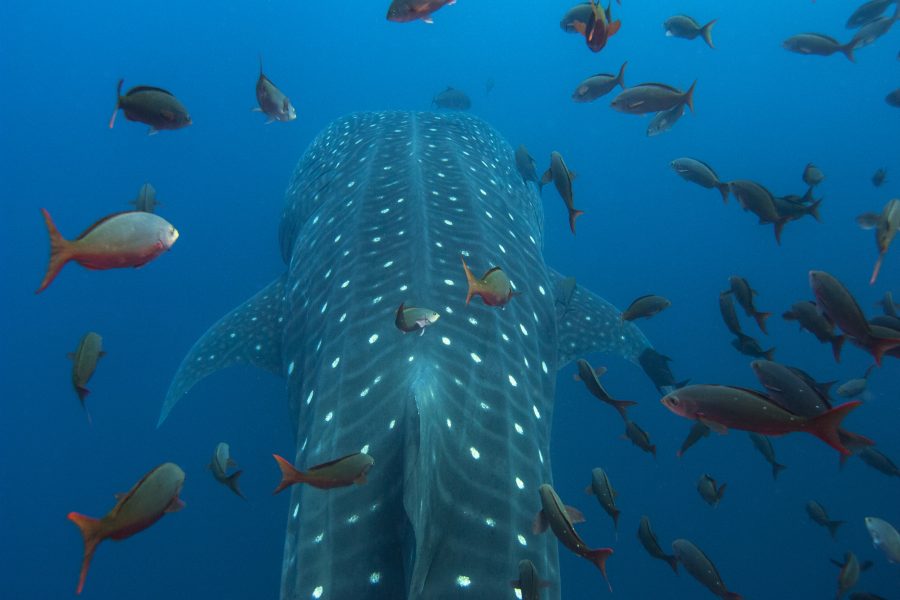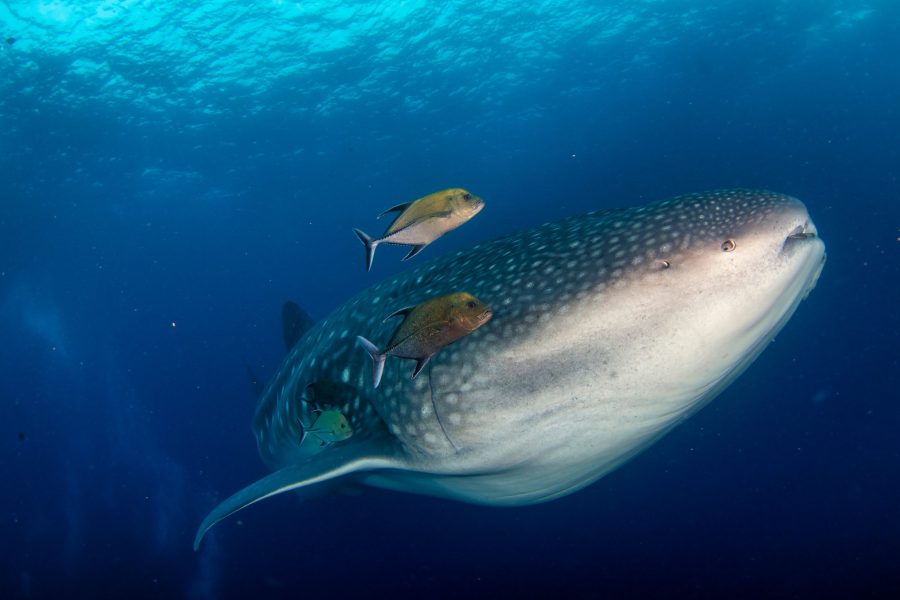Researching Whale Sharks in the Galápagos Marine Reserve
The Whale Shark is the largest shark and the biggest fish on the planet, but very little is known about it. This highly migratory megafauna species is key to the health of our oceans – thanks to their movement and feeding patterns, they carry nutrients from rich waters to scarce regions, helping to supply and balance marine ecosystems around the world. The Galápagos Marine Reserve (GMR) hosts significant numbers of predominantly female Whale Sharks each year, 90% of which appear to be pregnant. But scientists don’t yet know why they congregate here. That’s why we supported groundbreaking research with the Galápagos Whale Shark Project between 2021 and 2022, to better understand the movements — and hopefully the breeding habits — of this mysterious behemoth in the GMR and the Eastern Tropical Pacific.
-
Project Location
Galápagos Marine Reserve
-
Grant Period
2021 - 2022
-
Whale Shark Population Decline
More than 50% in last 75 years
-
Grant Recipient
Galapagos Whale Shark Project
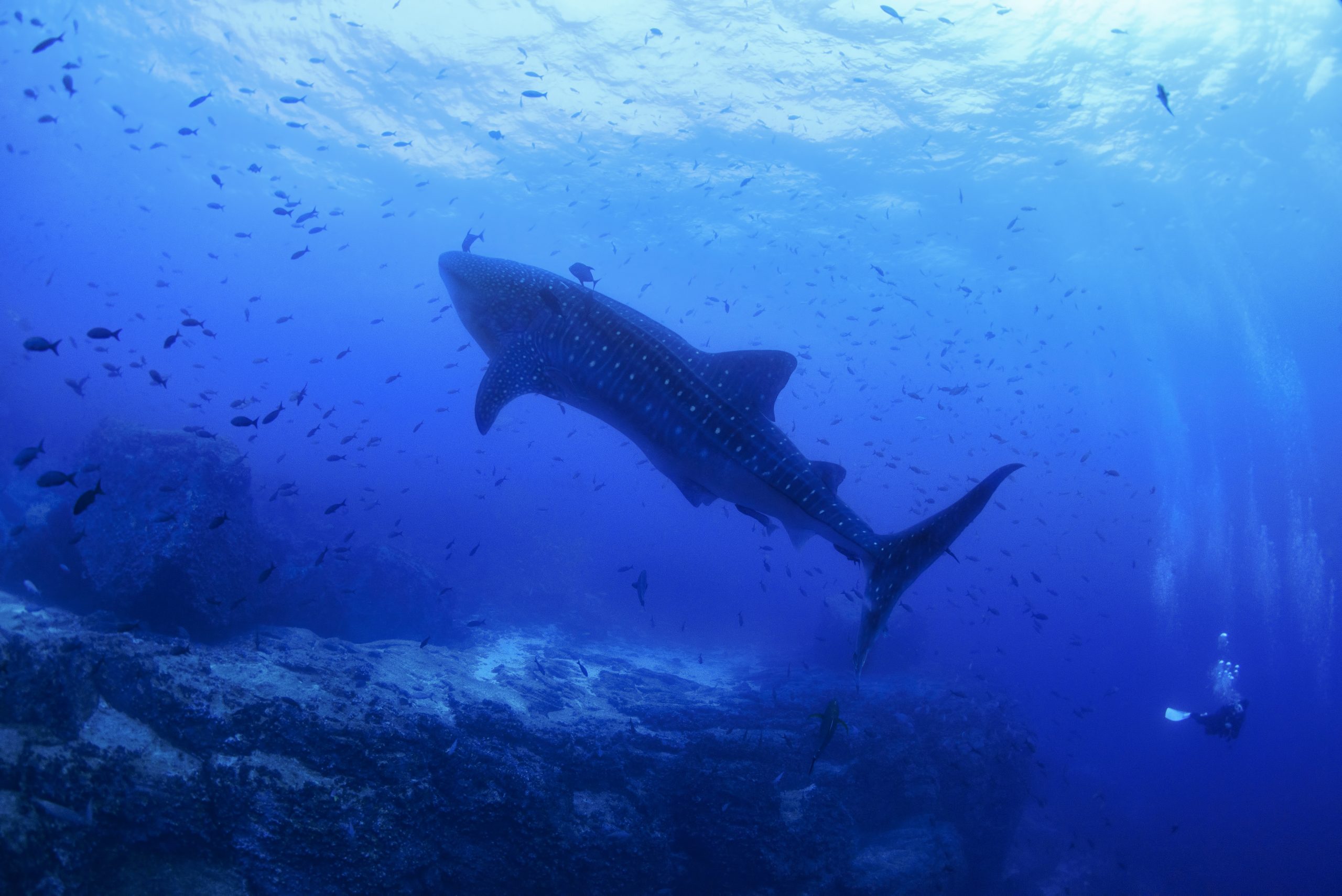
Why It Matters
- Since 2011, the Galápagos Whale Shark Project has been placing satellite tracking tags on Whale Sharks in the Galápagos Marine Reserve to learn more about their movement patterns and behavior. Scientists with the project also conducted the first-ever undersea ultrasound on a Whale Shark in 2018.
- A Whale Shark has never been seen giving birth, and juveniles that humans encounter are already a few years old. Scientists do not know where juveniles spend their first years of life, knowledge that is key to protecting breeding and rearing grounds.
- Given the high concentration of female Whale Sharks in Galapagos, the Islands may hold the key to finding Whale Shark nurseries.
- Whale Shark populations have been declining in recent years, and scientists have hypothesized that collisions with large vessels in shipping lanes may be to blame. By monitoring these tracking devices, we can determine how many animals are crossing busy shipping corridors.
Project Details
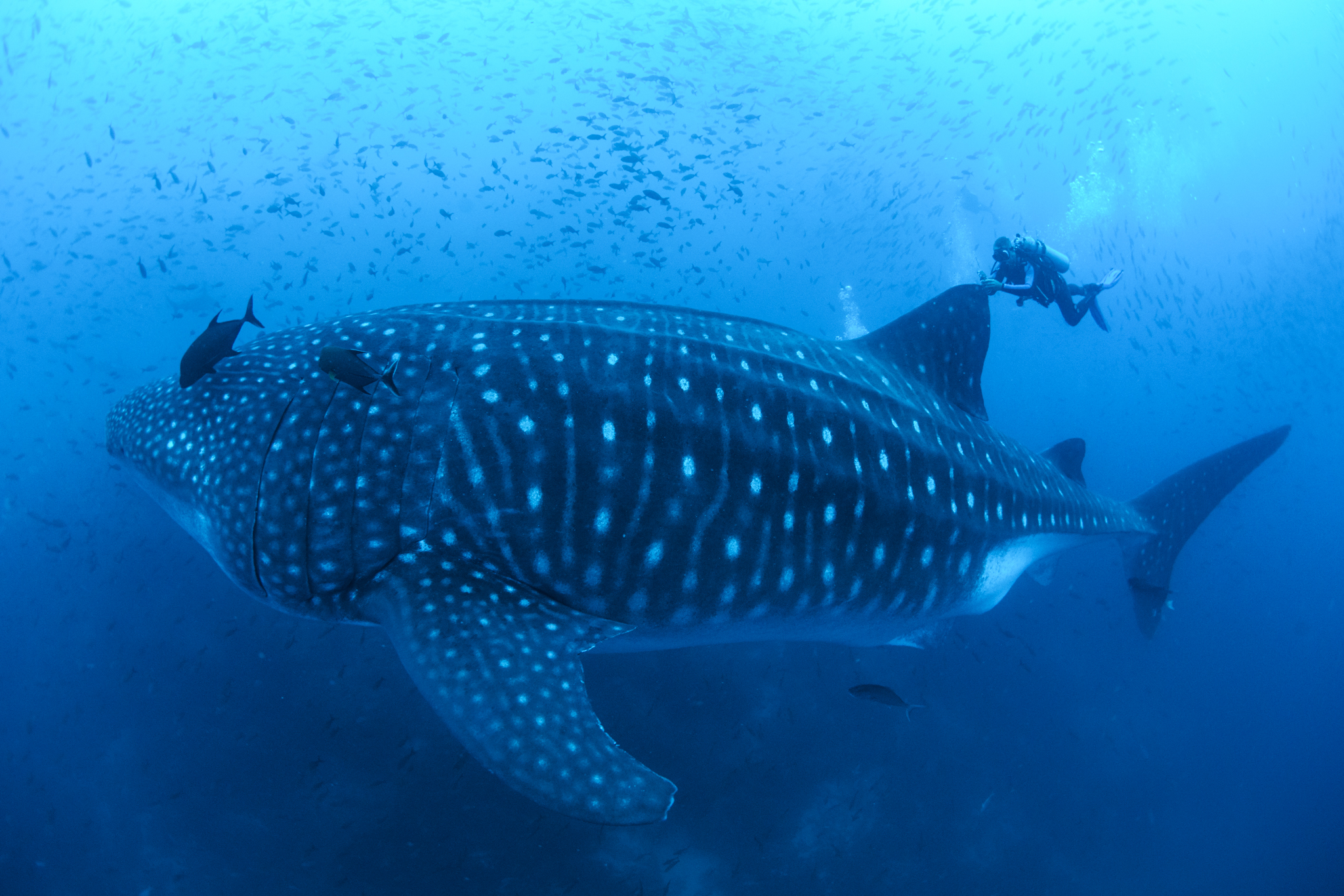
Partnership
Galápagos Whale Shark Project Director Jonathan Green has been studying marine environments in Galápagos since 1988. After launching this initiative in 2011, his team has revolutionized the study of these majestic creatures, and changed our understanding of the lives of these mysterious ocean giants. In 2021 Galápagos Conservancy started strengthening this project, broadening the scope of both fieldwork and data analysis, with the aim of obtaining key information to protect this species.
Project Status
The first research activities and data analysis started in January of 2022. The following month, environmental outreach and education activities with students and local community members also began, each with the goal of teaching local citizens about the Whale Sharks which so often appear in their waters. In the summer of 2022 a field expedition — which will entail Whale Shark tagging, blood and tissue collection, and ultrasound samples — is also planned.
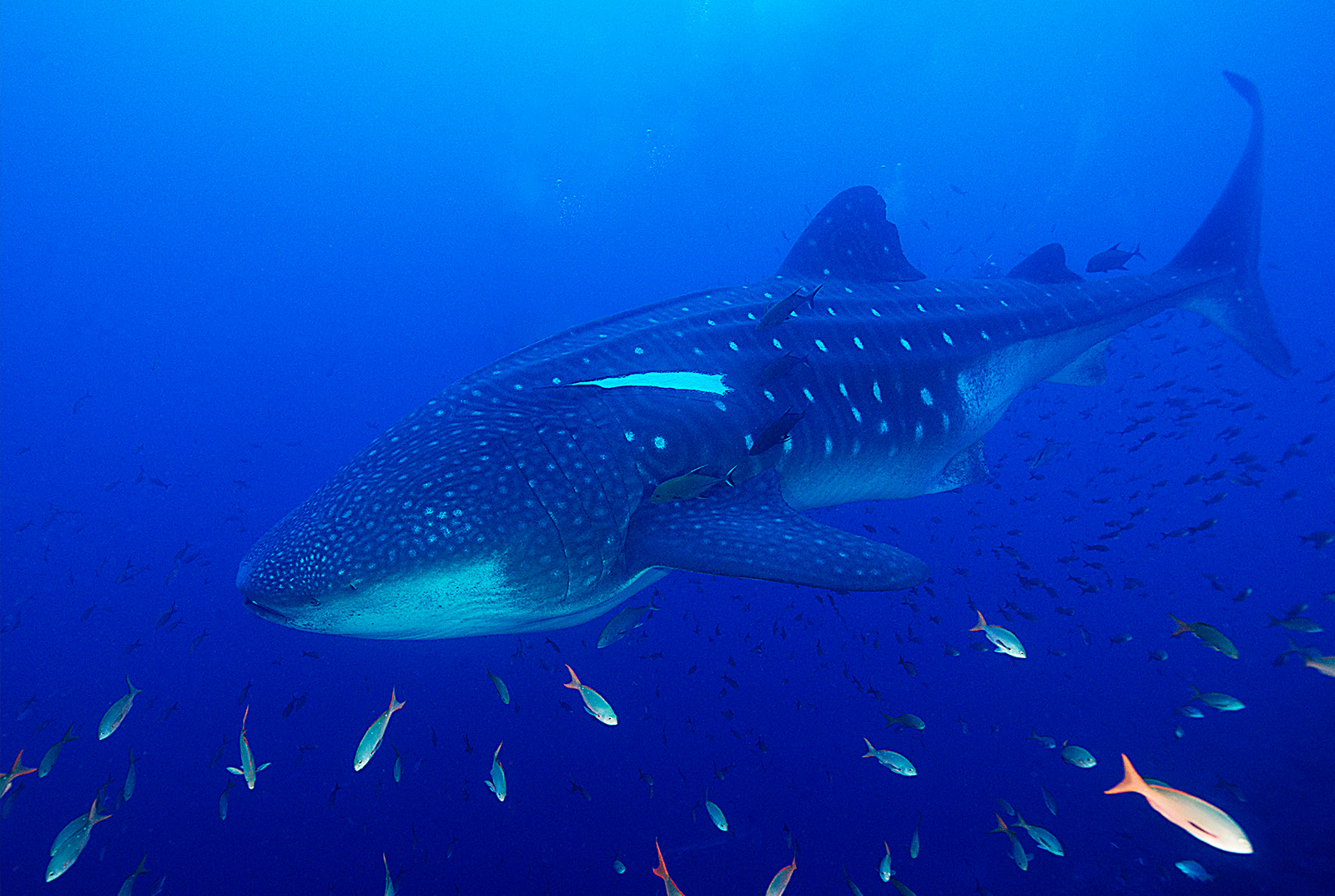
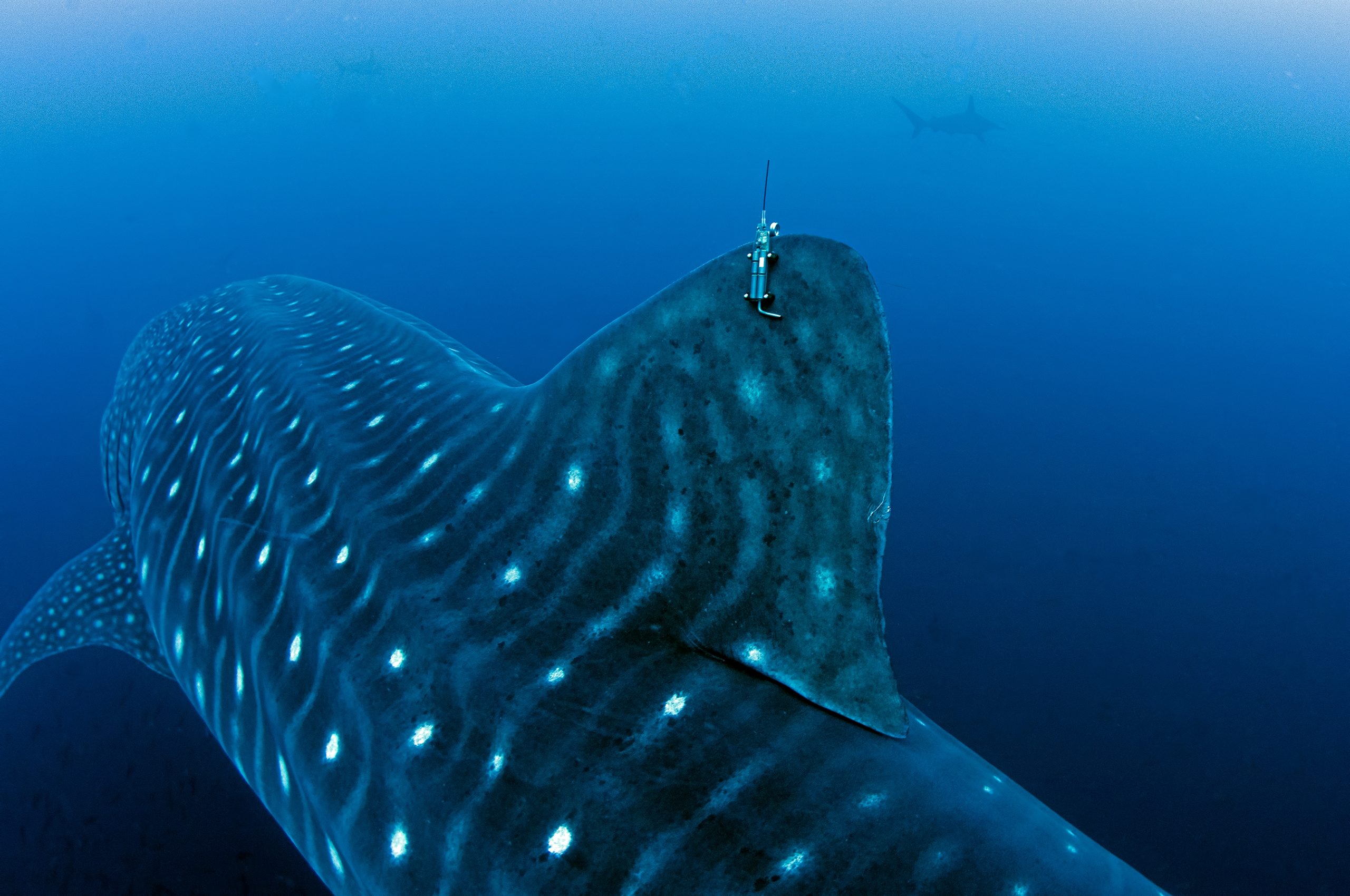
Expected Outcomes
Tracking migration patterns and habitat use and learning more about the reproductive state of the Galápagos Whale Sharks will provide information that will help protect this endangered species and the areas critical to their life cycle. In parallel, environmental education will be provided to the local community to garner their participation and support for conservation actions.
Get Involved
Take Action for Galápagos, Right Now
Our generous community of supporters is the cornerstone of our efforts to preserve this ecological wonder of the world.



More from Galápagos Conservancy
Keep Exploring
Our Efficiency
78%
Direct conservation and grants investments
18%
Fundraising
6%
Management
